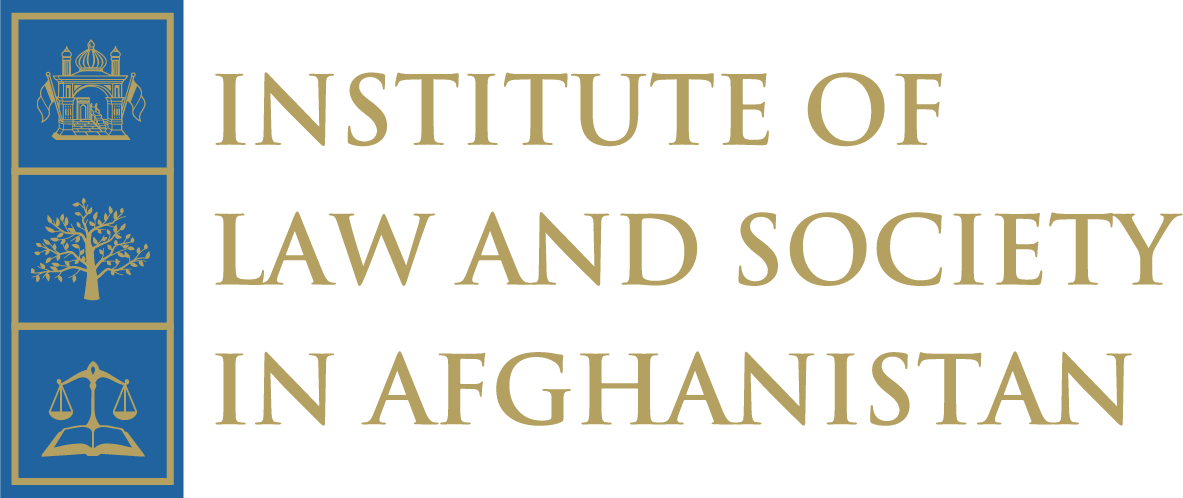English section:
Nafay Choudhury, “Lessons on Global Legal Transfers from Afghan
Taxi Drivers”, (pp. 29-52)
Noah Coburn, “The Uses of Legal Ambiguity: How Contractors
Control Workers in Afghanistan” (pp. 53-72)
Erica Gaston, “Legal Pluralism for Militias? Accountability Regimes
for Sub-state Forces in Afghanistan” (pp. 73-100)
Malthe Hilal-Harvald, “Enforcing Article 3 of the Afghan Constitution:
Lessons from the Pakistani Experience” (pp. 101-130)
Mohammad Hashim Kamali, “Countering Global Terrorism and its
Manifestations in Afghanistan: Advancing New Shariah Perspectives”
(pp. 131-168)
Mohammad Bashir Mobashir, “Constitutional Choices, Ethnic
Accommodations, and the Consolidation of Coalitions: A Critique of
the Merits of Article 61 for Electing the President of Afghanistan”
(pp. 169-192)
Mohammad Rassekh, “Non-violation of Islamic Law under the
Afghan Constitution” (pp. 193-212)
Tilmann J. Röder, “Complementarity and Conflict: State, Islamic, and
Customary Justice in Afghanistan” (pp. 213-244)
Warda Yasin, “Corporate Manslaughter and Islamic Law in
Afghanistan and Pakistan” (pp. 245-264)
Dari/Pashto section:
Ahmad Haneef Haneef, “The Implementation of Substantive
International Human Rights Obligations in Afghanistan: Examples
from the ICCPR”, Dari (pp. 51-92)
Ahmad Reza Sadeqi, The Regional Criminal Law Framework for the
Combat of Organized Crime”, Pashto (pp. 93-111)
Javad Taghizadeh Doughikola and Kiumars Firuz Jahantighi, “The
Acting President in the Constitution of Afghanistan”, Dari (pp. 113-
133)
Mohammad Ali Mirzaii, “The Apparent Theory in Afghan Civil Law”,
Dari (pp. 135-165)
Abdullah Shafaee, “Collective Property in Afghan Legal System”, Dari
(pp. 167-190)
Eid Mohammad Ahmadi, “The Need for Alternatives to
Imprisonment and Criminal Law Mechanisms in Afghanistan”, Dari
(pp. 191-206)
Gholam Hassan Gran, “Constitutional Framework of the Armed
Forces of Afghanistan”, Dari (pp. 207-223)
Lutforahman Saeed, “Membership of Women in Afghanistan’s
Supreme Court According to the Afghan Constitution and Hanafi
Jurisprudence”, Dari (pp. 225-231)
Mohammad Amin Ahmadi, “The Position of the Traditional Loya Jirga
in the Constitution of Afghanistan”, Dari (pp. 233-245)
Mohammad Qasim Hashimzai, “The Separation of Powers and the
Problem of Constitutional Interpretation”, Dari (pp. 247-286)
Mohammad Hashim Kamali, “Divorce and Women’s Rights: Should
Women have Equal Rights?”, Pashto (pp. 287-306)
Mohammad Yahya Balaghat, “Criminal Justice and Transparency as
Tools in Afghanistan’s Combat against Corruption”, Dari (pp. 307-
330)
Mehri Rezaiee, “The Relationship between Immigration and Human
Trafficking with Emphasis on Afghanistan”, Dari (pp. 331-355)
Nezamuddin Abdullah, “Civil Responsibility of the State in the Afghan
Legal System”, Dari (pp. 356-


